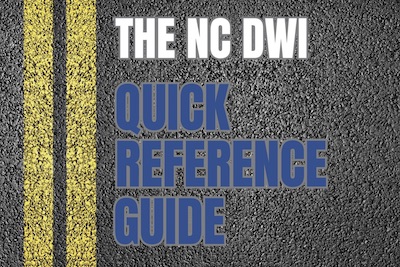What Is a False Representation in North Carolina? What Constitute Violations of the NC False Pretense Laws? The NC criminal laws are intended to be expansive, capturing the many unique schemes, frauds, and intents to deceive others for the purpose of obtaining things of value. False Representation is a Specific Intent crime in North Carolina. Unintentional, accidental acts are not subject to the law. Given the capacity for creativity and new scams, the Appellate Courts of North Carolina have found the following to be covered under the NC False Pretense Statute (N.C.G.S. 14-100).
- False representation that the Defendant was authorized to lease a home
- Invoices that were falsified
- Worthless check charges
- Passing counterfeit money
- False representation of Defendant’s Identity
- Creating a fraudulent business, for the purpose of passing Bad Checks
- Falsely holding self out as a Broker, for the purpose of investing in the Stock Market
- False representation of the value of a security pledged in a loan
- False representation about the clear title (unencumbered) of a property, free from a lien
An honest mistake or belief is a Defense to False Pretense charges in North Carolina. In meeting its Burden of Proof, the Prosecutor is not required to prove the intent to deceive or commit a fraud on a particular person. Failure to complete a contractual duty is not necessarily a violation of the law.
How Do Defense Lawyers Help?
Failure to act diligently, or the overall ineptness of the party in breach of contract or failure to perform a duty under a contract for services, are defenses to the charges. Without more, breach of contractual duties do not prove an intent to deceive or the intention to defraud.
Who Can Be a Victim in NC False Pretense Charges? Can False Pretense Apply to Businesses or Corporations in North Carolina? The “person” referred to in the NC criminal laws is intended to be broadly construed. It may include individual people. At the same time, false pretense may also apply to groups, organizations, corporations, associations, legal entities, and partnerships.
Similarly, the “person” in the false pretense laws in North Carolina may apply to the person accused of criminal charges (the defendant), as well as the corporation for which the Defendant serves as an “agent.” That means the corporation itself may be considered a criminal defendant. See North Carolina v. Louchheim (1978).
What is a Chose in Action under the NC Criminal Laws? Under the North Carolina larceny laws, there are legal terms used to describe the subject of the dispute. A “chose in action” traditionally describes the right of possession or right to possess property. In contrast, a “chose in possession” is when the property is in the possession of another, but is actually the property of another.
Top 3 Things to do if Arrested
The False Pretense laws in North Carolina apply to attempts to obtain, through fraud, deception, or trick, property chose in action. The person accused of criminal charges (like larceny and false pretense) would gain possession of the property, but not necessarily have a formal ownership interest or legal title to the property.
If the Defendant made a representation that was false, but for another reason other than to secure the property or thing of value at issue, that is not a violation of the false pretense law. There must be a connection between obtaining the thing of value (the property) and the misrepresentation, falsehood, or false statement.
The victim in NC false pretense charges does not necessarily have to suffer a loss or economic loss of the property or thing of value. Giving the property, without economic loss, is covered under the NC criminal laws. Similarly, the State need not prove the person accused of False Pretense actually obtained the item of value or personal property.
An Attempt regarding False Pretense charges in North Carolina is equally guilty. The punishment under the NC sentencing laws is the same as completing the act, resulting in false pretense, as the attempt to commit the fraud or misrepresentation. One cannot be convicted of both Embezzlement and obtaining property by false pretenses for the same property or thing of value.
The person accused of false pretense charges cannot obtain property by both unlawful means AND lawful means. The offenses are said to be “mutually exclusive.” See North Carolina v. Mumford (2010) North Carolina Supreme Court legal opinion.
Worthless Check Charges in North Carolina Uttering or making a worthless check in North Carolina is NOT a “lesser included offense” to Obtaining Property by False Pretense charges in North Carolina. Similarly, using a “non-existent account” to write a worthless check is not a lesser include offense, nor are criminal charges alleging Obtaining Property for a Check that is worthless, or Worthless Check on a Close Account charges.
Is Larceny a Felony or Misdemeanor Charge?
What Is the Difference Between Obtaining Property by False Pretenses and Larceny? - Larceny does not require a misleading or false representation. False Pretense charges in North Carolina do. A false representation may be the legal basis for criminal charges for Larceny by Trick in North Carolina.
- Larceny generally requires taking an item of value or property, involving wrongfully taking the item or items. False pretense charges involve consent to take property, that consent being obtained through trick, deception, fraud, or misrepresentation.
- Larceny in North Carolina requires the “intent to permanently deprive” the owner of their property or thing of value. False pretense charges do not require the intent to permanently deprive the victim of their property. Even a temporary deprivation may be enough.
Helpful Information About Criminal Charges  Powers Law Firm PA Home
Powers Law Firm PA Home



















